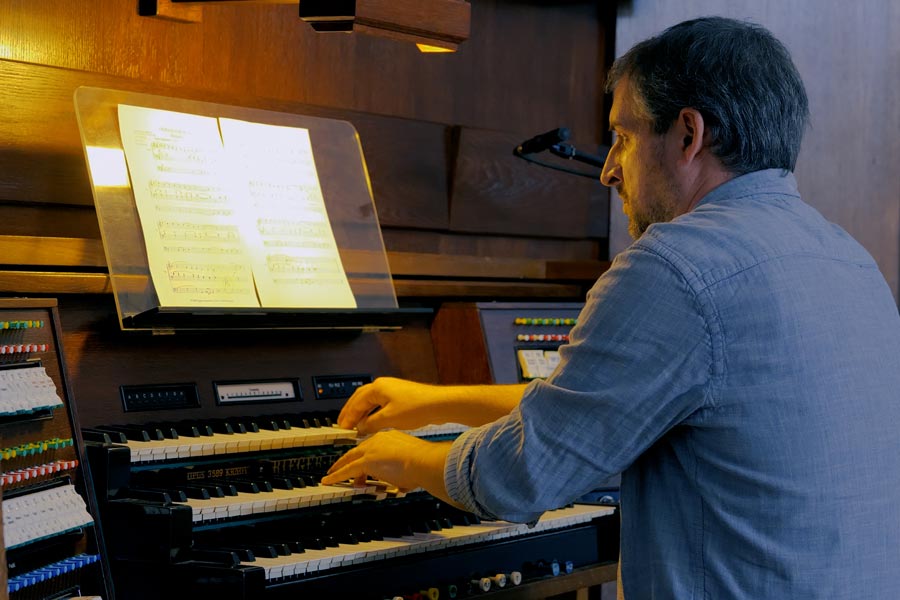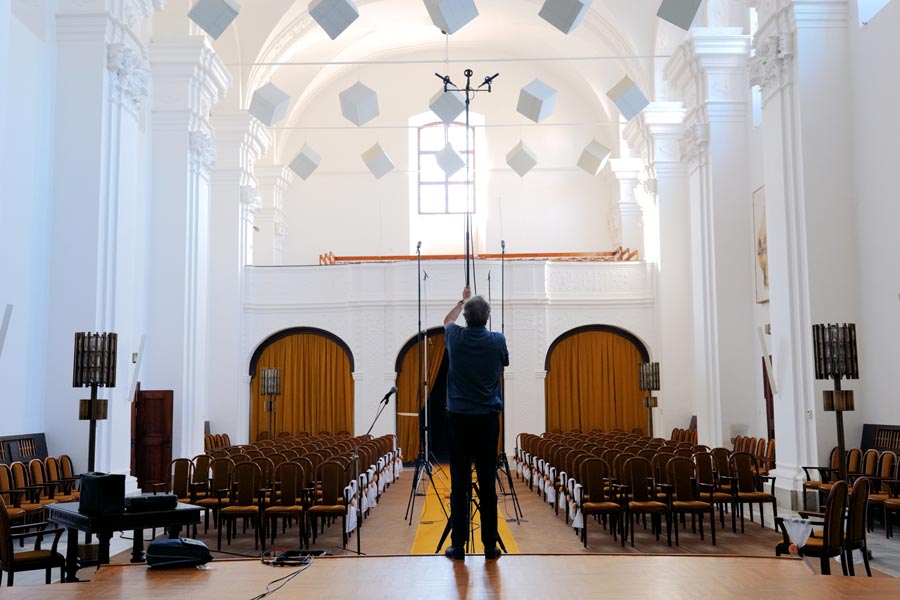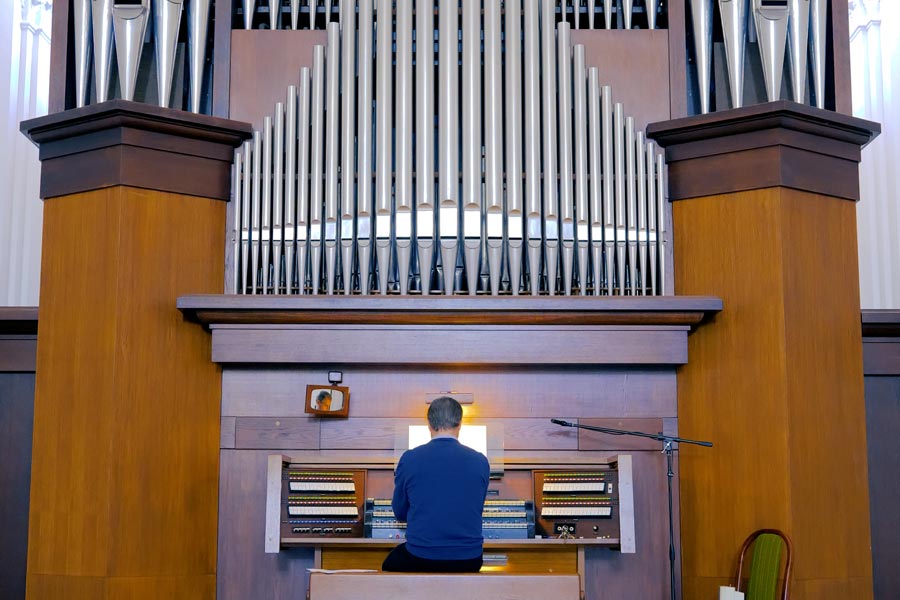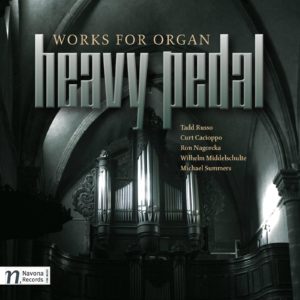Heavy Pedal Vol. 2
Deon Nielsen Price composer
John Rommereim composer
Christopher J. Hoh composer
Richard E Brown composer
Karel Martínek organ
The aptly-titled HEAVY PEDAL VOL. 2 from Navona Records is the second installment of an organ-centric series of albums. Featuring the music of composers Christopher Hoh, Deon Price, Richard E Brown, and John Rommereim, the collection lives up to its name; these organ works are some of the most powerful that classical music has to offer. From Hoh’s Concertino Corona, inspired by the hardships and seeds of hope from COVID-19, to Brown’s Six Chorale Preludes on Favorite Hymn Tunes, which were composed using Brown’s encyclopedic understanding of historical hymns, HEAVY PEDAL VOL. 2 brings the organ down from the choir loft to allow all listeners a greater appreciation of this incredibly dynamic instrument.
Listen
Stream/Buy
Choose your platform

Experience in Immersive Audio
This album is available in spatial audio on compatible devices.
Stream now on Apple Music, Tidal, and Amazon Music.
An Inside Look
Chorales for Organ – Deon Nielsen Price | Karel Martínek, organ
Track Listing & Credits
| # | Title | Composer | Performer | |
|---|---|---|---|---|
| 01 | Chorales for Organ: Villanelle | Deon Nielsen Price | Karel Martínek, organ | 2:18 |
| 02 | Chorales for Organ: Psalm | Deon Nielsen Price | Karel Martínek, organ | 1:32 |
| 03 | Chorales for Organ: Persuasion | Deon Nielsen Price | Karel Martínek, organ | 1:23 |
| 04 | Chorales for Organ: How long, O Lord, Most Holy | Deon Nielsen Price | Karel Martínek, organ | 3:04 |
| 05 | Gesangvoll: Variations on a Theme by Beethoven | John Rommereim | Karel Martínek, organ; Jan Kučera, oboe | 9:03 |
| 06 | Six Chorale Preludes on Favorite Hymn Tunes: Ellacombe | Richard E Brown | Karel Martínek, organ | 3:18 |
| 07 | Six Chorale Preludes on Favorite Hymn Tunes: Leoni | Richard E Brown | Karel Martínek, organ | 3:05 |
| 08 | Six Chorale Preludes on Favorite Hymn Tunes: Wondrous Love | Richard E Brown | Karel Martínek, organ | 3:26 |
| 09 | Six Chorale Preludes on Favorite Hymn Tunes: Hyfrydol | Richard E Brown | Karel Martínek, organ | 3:05 |
| 10 | Six Chorale Preludes on Favorite Hymn Tunes: Picardy | Richard E Brown | Karel Martínek, organ | 3:08 |
| 11 | Six Chorale Preludes on Favorite Hymn Tunes: Regent Square | Richard E Brown | Karel Martínek, organ | 3:00 |
| 12 | Concertino Corona: I. To the Heroes | Christopher Hoh | The Czech Chamber Philharmonic Orchestra Pardubice | Stanislav Vavřínek, conductor; Karel Martínek, organ | 4:14 |
| 13 | Concertino Corona: II. Remembrance | Christopher Hoh | The Czech Chamber Philharmonic Orchestra Pardubice | Stanislav Vavřínek, conductor; Karel Martínek, organ | 7:28 |
| 14 | Concertino Corona: III. Chorale & Dance of Life | Christopher Hoh | The Czech Chamber Philharmonic Orchestra Pardubice | Stanislav Vavřínek, conductor; Karel Martínek, organ | 7:01 |
Chorales for Organ, Six Chorale Preludes for Organ
Recorded October 20-21, 2022 at Concert Hall in Uničov, Czech Republic
Session Producer Jan Košulič
Session Engineer Aleš Dvořák
Editing Jan Košulič, additional editing and mixing Lucas Paquette
Gesangvoll
Recorded May 13, 2022 at Concert Hall in Uničov, Czech Republic
Session Producer Jan Košulič
Session Engineer Pavel Kunčar
Editing & Mixing Melanie Montgomery, additional editing Ethan Fields
Concertino Corona
Recorded November 22, 2022 at House of Music in Pardubice (Dům hudby v Pardubicích), Czech Republic
Session Producer Jan Košulič
Session Engineer Aleš Dvořák
Editing Jan Košulič, additional editing and mixing Lucas Paquette, Melanie Montgomery
Mastering Brad Michel
Immersive Audio Engineer Brad Michel
Executive Producer Bob Lord
A&R Director Brandon MacNeil
A&R Danielle Sullivan, Chris Robinson
VP of Production Jan Košulič
Audio Director Lucas Paquette
Production Director Levi Brown
Production Manager Martina Watzková
VP, Design & Marketing Brett Picknell
Art Director Ryan Harrison
Design Edward A. Fleming
Publicity Patrick Niland, Aidan Curran
Artist Information
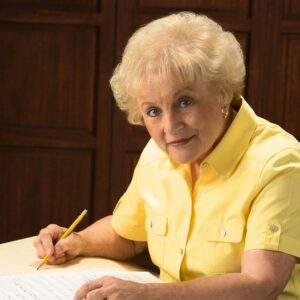
Deon Nielsen Price
The deep humanitarian concerns that permeate much of Dr. Deon Nielsen Price’s music is represented in her duo War Ends-Song Endures, a tribute to the valiant spirit of Ukrainians, premiered in 2023 at the Mu Phi Epsilon International Convention in Texas by flutist Rik Noyce and commissioning pianist Mary Au. Named the "Tom Brady of Composers" (New York Times 12/24/2022), Price feels honored to represent octogenarian composers who are still professionally active. She was a Winner of The 2023 American Prize in orchestra for her Chamber Symphony as well as a finalist for The 2023 American Prize in vocal chamber music for her song cycle Ludwig’s Letter to Eternal Beloved, and, in opera/theater, for her chamber opera, Ammon and the King, Immigrant Speaks Truth to Power. Her Oratorio CHRISTUS was premiered and recorded in the Salt Lake Tabernacle in June 2023.

John Rommereim
John Rommereim is a musician who has pursued a varied career as a composer, conductor, keyboardist, and professor. His vocal music is distinguished by the way in which it uncovers the emotional core of each chosen text. This successful fusion of poetry and music might be exemplified best in the title song for this album, Into the Still Hollow, which has been praised by the New York Times for its "richly expressive" character. This album offers a selection of his vocal and chamber music performed by an array of celebrated artists.
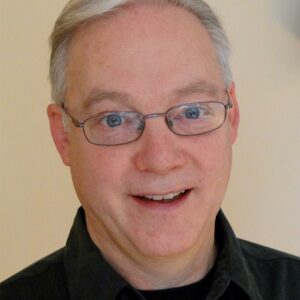
Christopher J. Hoh
“Full of charm and shapely allure” (Opera News) and “a tapestry of immense grace” (Textura) are some of the praises Christopher J. Hoh has received for his music. He grew up in Reading PA and was influenced as a young singer and accompanist by great works under conductors in Pennsylvania, New York, and Washington. He has been in Alice Parker’s composer seminar as well as workshops with Jean Berger, Daniel Moe, Robert Page, and Craig Jessop.
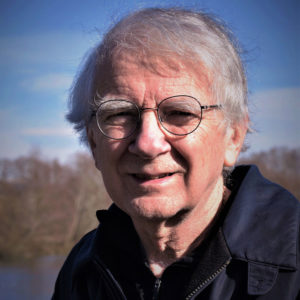
Richard E Brown
Richard E Brown, a native of New York State and has been active as a composer-arranger and music educator for many years. His training includes M.M. and D.M. degrees in composition from Florida State University, as well as a B.A. in music education from Central College, which named him a Distinguished Alumnus in 1983. His principal composition studies were with Carlisle Floyd, John Boda, and Charles Carter. He is a member of ASCAP and is represented in the catalogs of several trade publishers, as well as his personal imprint Dacker Music.
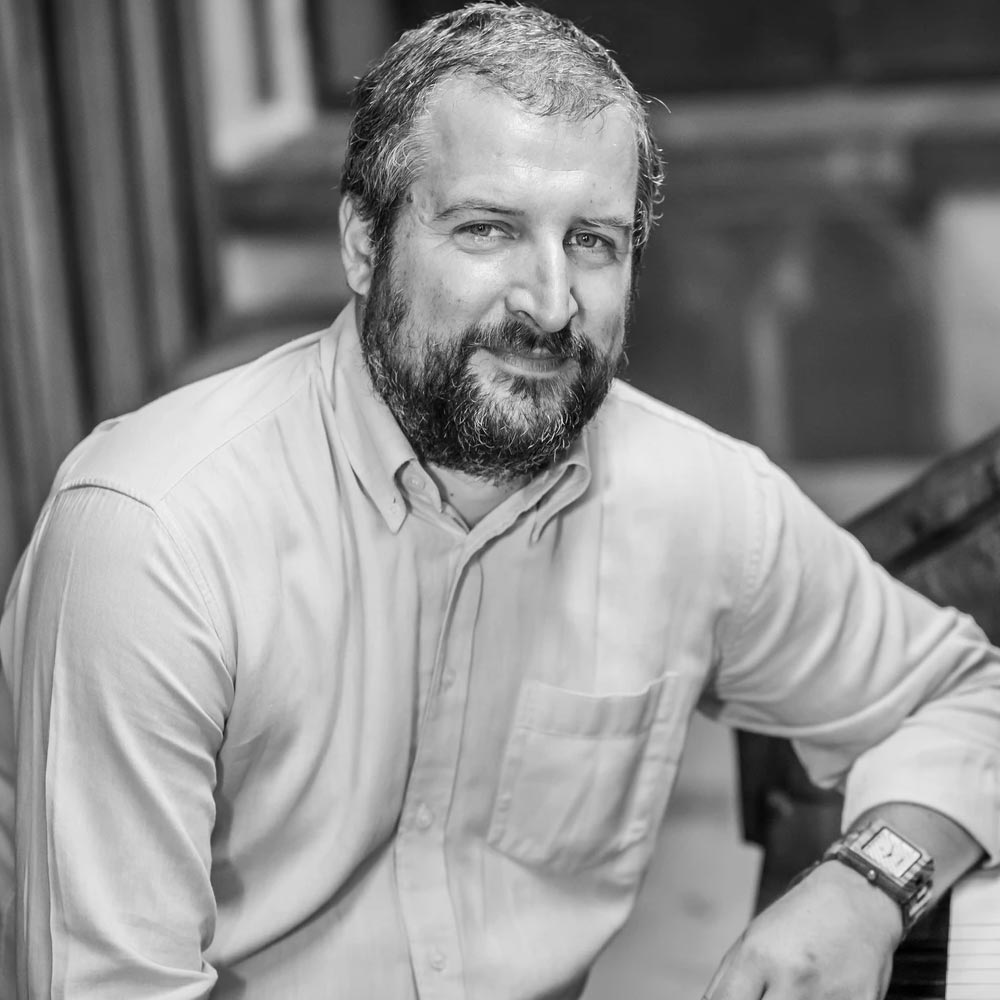
Karel Martínek
Karel Martínek was born in Olomouc. He first studied mathematics and physics at the Faculty of Natural Sciences at Palacký University and later musicology at the Faculty of Philosophy. From 2004 to 2009 he studied organ at the Janáček Academy of Performing Arts in Brno under the leadership of Professor Kamila Klugarová and organ improvisation under Professor Karel Pokora. In 2014 he started his studies of improvisation under Philippe Lefebvre, titular organist of the Notre-Dame Cathedral in Paris. Besides the interpretation of a wide spectrum of organ literature, Martínek also dedicates himself to improvisation.
The Czech Chamber Philharmonic Orchestra Pardubice
The Czech Chamber Philharmonic Orchestra Pardubice, founded in 1969, is one of the Czech Republic’s top orchestras. The repertoire of this chamber orchestra includes a large number of compositions from the baroque era to contemporary music, including many cross-over and multigenre projects.
